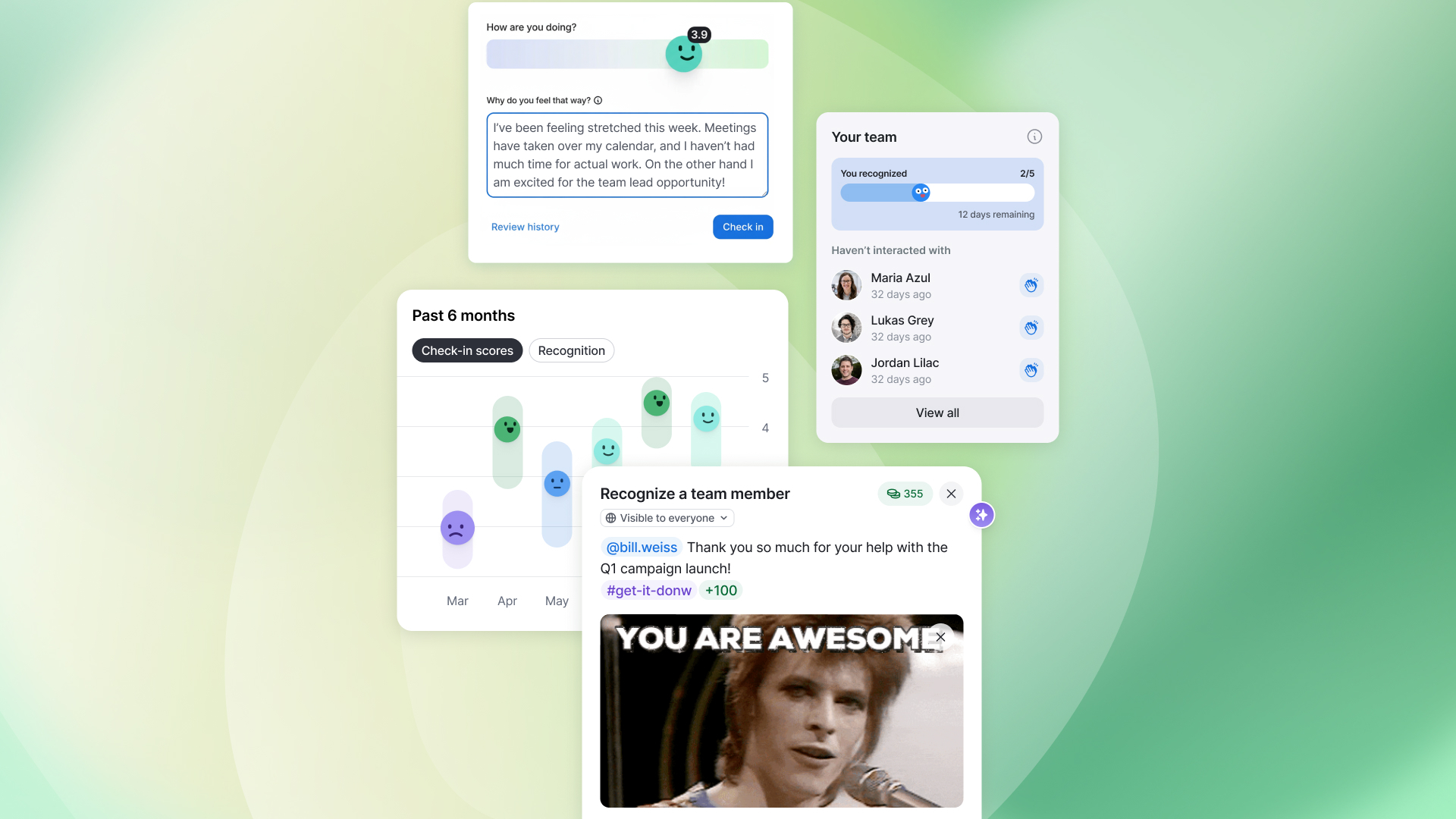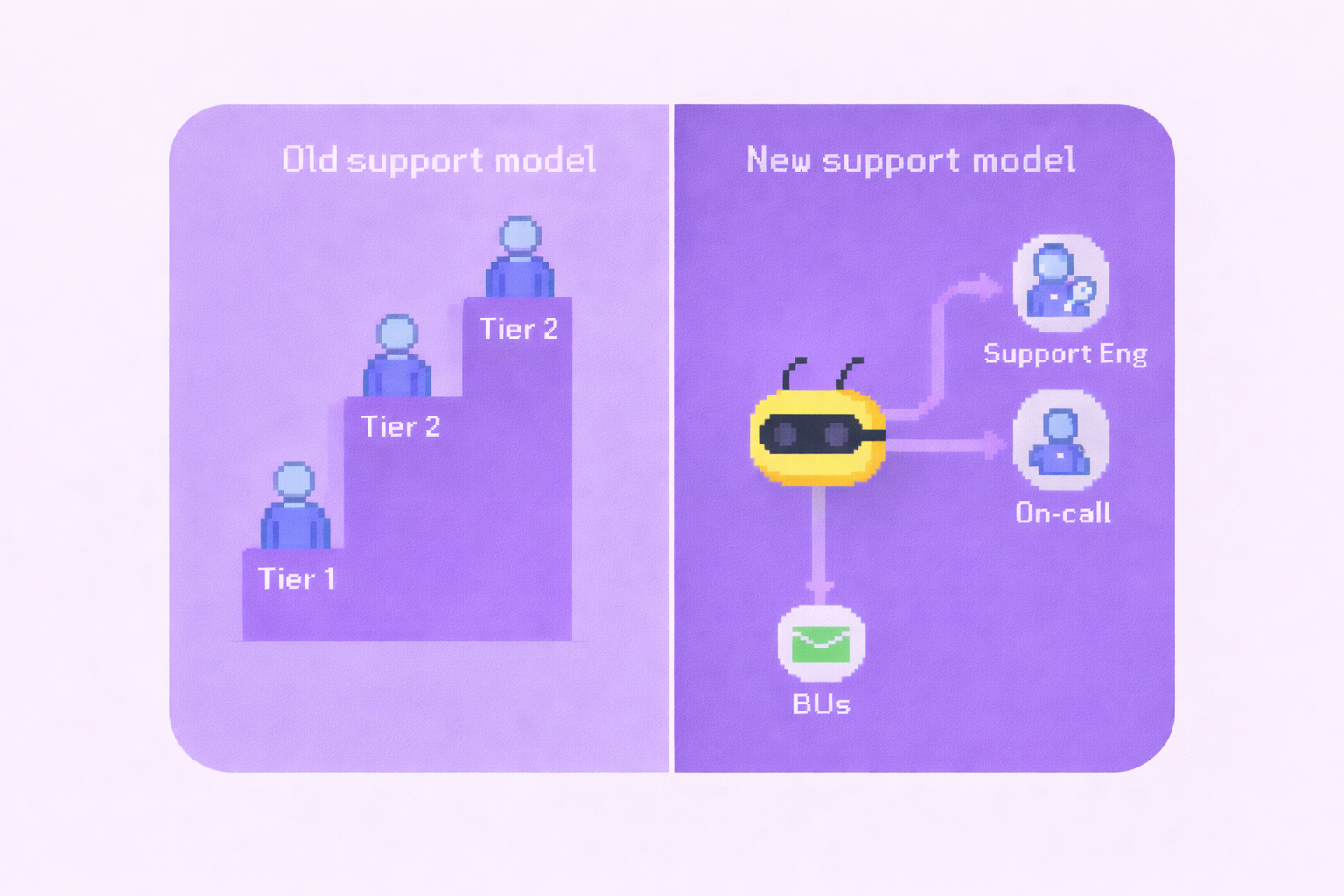Surviving and Thriving as an HR Team of One

HR is just one department, but it encompasses many critical functions that enable organizations to succeed: total rewards, DEI, employee engagement, L&D, and compliance, just to name a handful of them. But if you’re reading this post, then it’s likely that you, dear reader, are that entire HR team… by yourself.
If you feel like you’re drowning as you try to manage these tasks and roles yourself, you’re definitely not alone. But you also shouldn’t lose hope! This blog post will help you figure out how to go from survival mode to fully thriving—to be more efficient and effective in your role, to do more with less, and to succeed as an HR team of one. We’ll also detail why certain parts of the job may feel non-necessity but are critical to feeling fulfilled and finding success.
Here are five ways to approach leading and executing an effective HR strategy even with limited resources and time.

Get ruthless with time management
The most critical task for any solo HR folks is getting ruthlessly organized so you can manage your time with maximum effectiveness. Fortunately, there are a ton of helpful tech tools on the market that can help you hit all those deadlines and stay ahead of all the vital tasks across your responsibilities.
Determine what you need to track and manage, and look into tools like Asana, ClickUp, Notion, and Trello to see what works best for your workflow and needs. They’re more than just project management tools—they can help you stay on top of everything you need to handle, every day.
And don’t hesitate to delegate tasks that don’t need to be handled by an HR pro, like scheduling meetings and assembling swag boxes for new hires, to your administrative support staff.

Don’t lose sight of strategy
Those daily tasks and deadlines are essential to stay on top of, but long-term planning and strategic work should be a priority too. It’s easy for them to fall by the wayside when you’re swamped with urgent tasks like annual benefits enrollment or new hire onboarding, but they’re just as essential.
Strategic work and proactive planning will allow you to lay a solid foundation for your HR function and prepare for the future. Don’t forget tasks like creating a comprehensive employee handbook, writing engaging job descriptions, conducting manager trainings, and updating employee files.
If this seems overwhelming, start small. Write a list of your three top priorities, and dedicate time every week to making at least a little progress. Monitor that progress and when one initiative is completed, take a moment to celebrate and then add the next priority. Slowly and steadily, you’ll get through more than you think.
Also, you might need to get a little ruthless with your priorities and tasks to make sure you have time for the things that truly matter, to employees and to the larger business goals. Get good at saying no to things outside of your remit—it helps if you can back that refusal up with your overall strategy and how it aligns with the organization’s strategy and priorities. (It’s hard to argue with that!)

Embrace technology
As an HR team of one, you must lean into all of the exciting new technology available in the HR world. Some platforms can make your routine tasks like running payroll, managing employee benefits, increasing recognition and engagement, and gathering and analyzing data possible with just a few clicks.
And yes, you should look into what AI can do for your HR tasks, too—you might be pleasantly surprised at how effective it is for automating formerly time-consuming manual tasks, for example.
While your HR team of one likely has a pretty small budget, there are options to explore that can give you a big ROI and free up your time for those strategic and employee-focused tasks. And many of them have affordable options for even really small teams and organizations: Bonusly’s plans start at just $2/month per employee, for example. Most HR tools also offer free trials, so you can test-drive them before making a financial commitment.
Hear from Bonusly customer Hilton Foundation on how Bonusly "runs itself" with smart automations and integrations, versus the company's old manual recognition process that was an "administrative hassle."
Find time to prioritize learning and development
HR is an ever-changing field: labor laws change, organizational needs shift, and best practices adapt. Pencil in regular time to dive into educational opportunities like courses, reading blogs (hey, you’re already on top of that!), and research the areas you’d like to strengthen your skills. Continuing education will help you set yourself and your HR function up for future success. SHRM has an in-depth course specifically about running a solo HR team, just to give you a place to start.
But getting time for learning and developing can be tough with a full plate of important tasks. Breaking these tasks into smaller chunks, like devoting just an hour or two a week to focused learning, can make sure it all gets done without overwhelming you during busy periods. And during quieter times of the year, you can schedule bigger blocks of time for your development.
Education isn’t just important for your growth—you can also help employees learn more about what HR is and does for them, and educate your leadership on the value and support your function provides too.

Stay in touch with employees
As you organize and plan your time more efficiently, leverage technology, and continue to grow in your HR role, don’t forget about why you’re doing all this work: for the humans in our organization. While it may seem like time is limited, talking to employees at all levels, checking in with them regularly to take the pulse of the workforce, and keeping your door open (physically or metaphorically) for them to come to you with concerns, questions, and ideas, is a vital part of doing the job well.
Mingling and engaging with employees isn’t just good for them, either: it can provide you with that sense of purpose and mission that makes the toughest days in this job worth it. (And as an HR team of one, you’ve probably got plenty of those days.)

Takeaways
Just keeping your head above water some days can be challenging as an HR team of one—too many critical duties and too little time. But you can set yourself up with a strong foundation for success, with excellent task and time management systems, the right tools, and a focus on making time for helping the employees who are at the center of everything you do. That’s the best way to go from barely surviving to totally thriving as a solo HR practitioner: you’ve got this!







